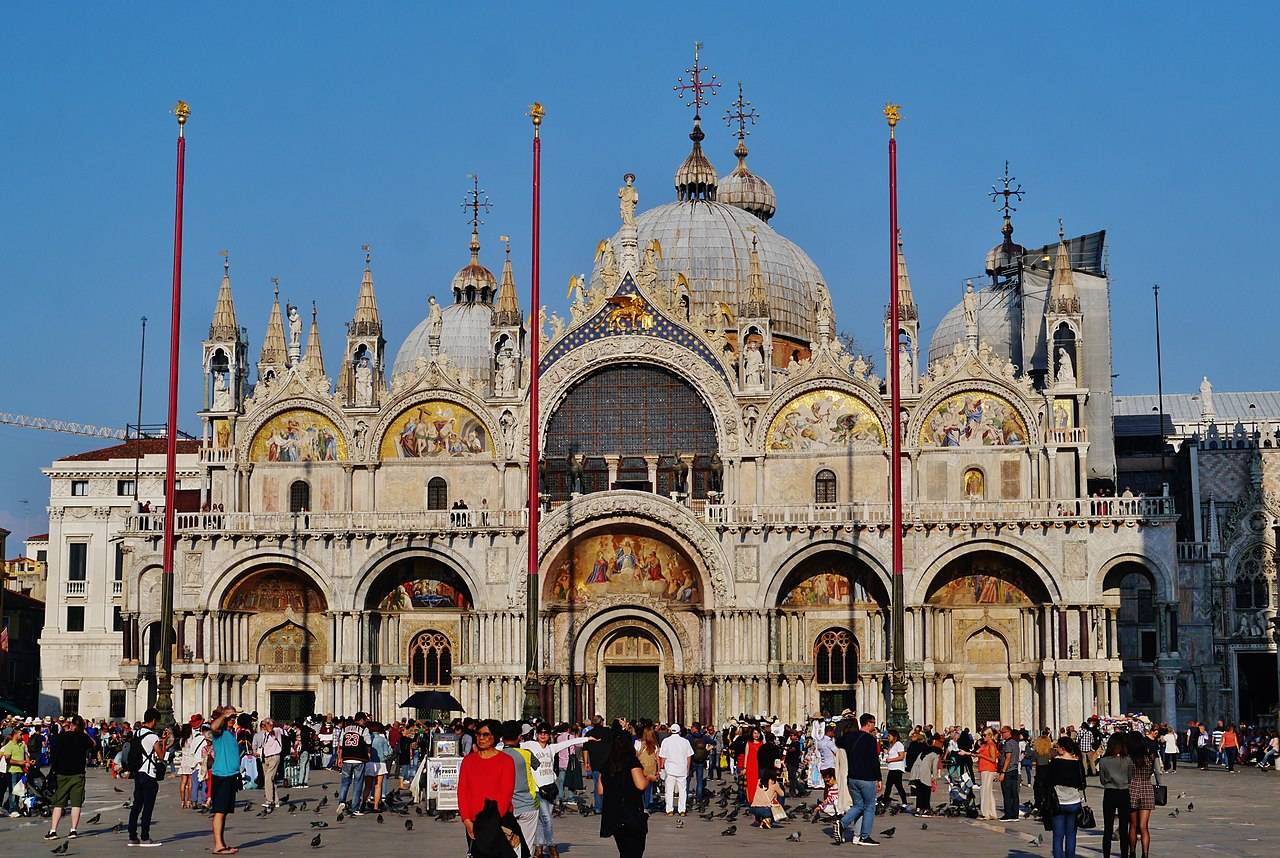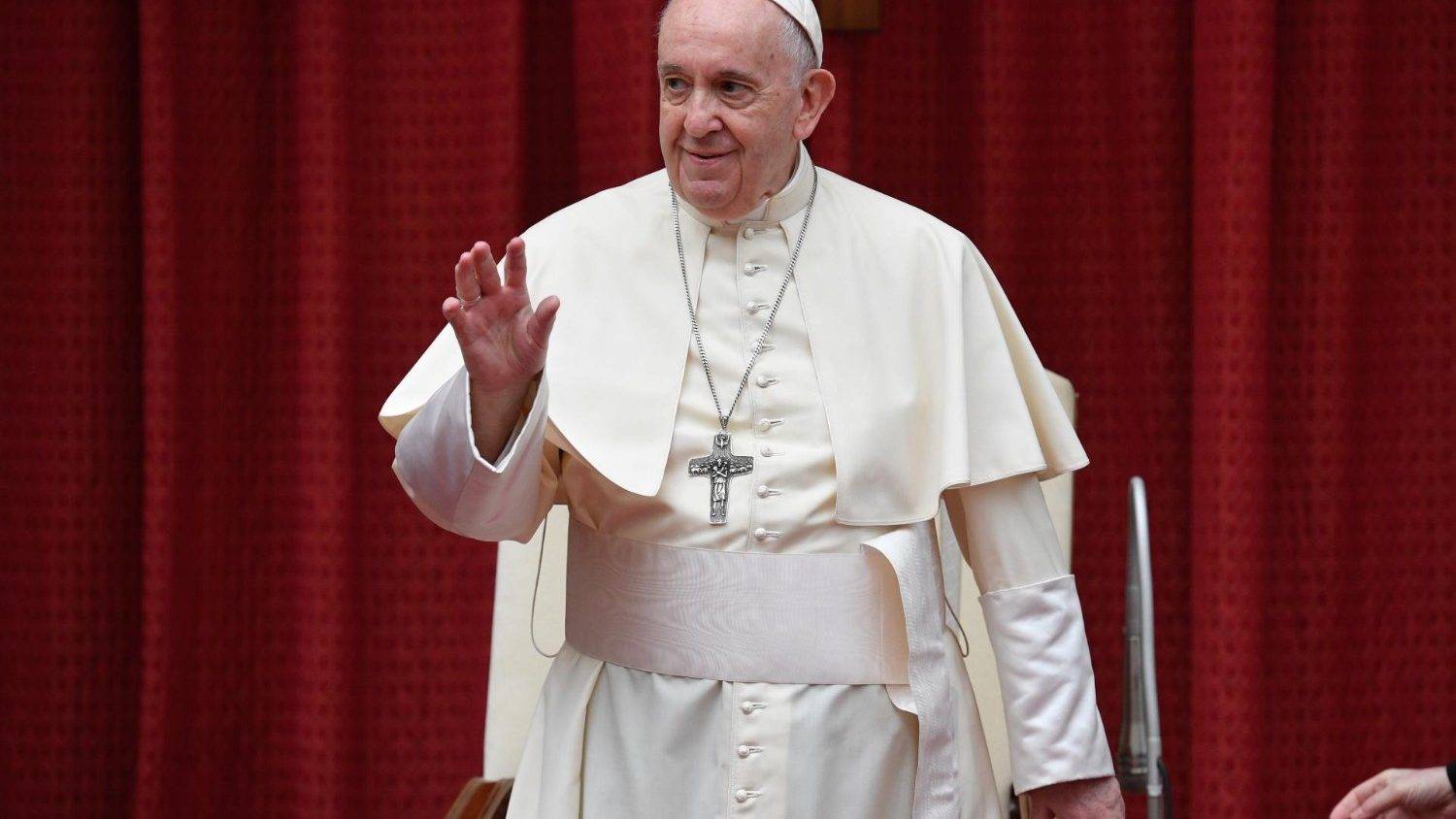ROME – Argentina’s first female saint arguably worked yet another miracle at her own canonization Mass Sunday, bringing Pope Francis and rightwing populist Argentine President Javier Milei, known for his derogatory remarks about the pontiff, together for a warm embrace.
A former television pundit, Milei was elected president of Argentina in November. He drew global attention during his campaign for the colorful language he used to describe Pope Francis, calling the pontiff an “imbecile,” a “communist,” a “filthy leftist,” and a “son of a bitch,” among other pejoratives.
In an interview shortly after Milei’s election, Pope Francis dismissed such inflammatory rhetoric, saying, “You have to distinguish a lot between what a politician says in the election campaign and what he actually does afterward, because then comes the moment of concreteness, of decisions.”
That moment of concreteness came Sunday, when the pope and president met for the first time in St. Peter’s Basilica for the canonization of Argentina’s first native saint, Maria Antonia of Saint Joseph de Paz y Figueroa, affectionately known by Argentinians as “Mama Antula.”

After greeting Milei briefly at the beginning of Sunday’s ceremony, Pope Francis said hello to the Argentine president a second time with other government ministers on his way out, with Milei breaking protocol and giving the pope a hug.
The two men are scheduled to hold a formal, private meeting Monday at 9:00 a.m. at the Vatican, during which they are expected to discuss Argentina’s crippling economic situation and a potential papal visit to the country later this year.
Francis and Milei have already briefly engaged these issues in written exchanges and during an 8-minute phone call after Milei’s election in November.
During that conversation, Pope Francis congratulated Milei for his victory and the two touched on Argentina’s decades-long economic crisis, with 40.1 percent of the population living in poverty and with inflation rates standing at over 200 percent, according to the government’s INDEC statistics agency.
Last month Milei wrote a two-page letter to the pope thanking him for “your wise advice and wishes for courage and wisdom for me,” and expressing a desire that Francis visit their “beloved homeland.”
To tackle the country’s economic woes, Milei has already taken several dramatic and divisive steps, devaluing the peso by more than 50 percent, cutting state fuel and transport subsidies, and rolling out a new reform bill touching on a variety of public and private issues, such as privatization, the penal code, the status of soccer clubs, and cultural issues.
Pope Francis in his homily for Sunday’s canonization of Mama Antula decried attitudes he said make poverty and injustice worse.
“Fear, prejudice and false religiosity are three causes of a great injustice. They are three ‘leprosies of the soul’ that cause the weak to suffer and then be discarded like refuse,” he said.
He cautioned believers against thinking these attitudes are “relics of the past,” and referenced the “many suffering men and women” they pass by each day.
“How many fears, prejudices and inconsistencies, even among those who are believers and call themselves Christians, contribute to wounding them all the more! In our time too, there are striking cases of ostracism, barriers needing to be torn down, forms of ‘leprosy’ to be cured,” he said.
Pope Francis said the problem arises when “we withdraw from others and think only of ourselves; when we reduce the world around us to the limits of our own ‘comfort zone;’ when we believe that the problem is always and only other people.”
“In such cases, we need to be attentive, for the diagnosis is clear: a ‘leprosy of the soul:’ a sickness that blinds us to love and compassion, one that destroys us by the cankers of selfishness, prejudice, indifference and intolerance,” he said.
To this end, he praised the “hidden charity” practiced by Mama Antula and said attentive closeness to those in need, “without fears and prejudices, leaving behind a dull and disembodied religiosity,” is what brings healing.
In addition to her charitable work with the poor and destitute, Mama Antula is also known for her promotion of the Ignatian spiritual exercises.
Born in Silipica, Santiago del Estero, in 1730, at the age of 15 she joined other boys and girls in assisting the Jesuits in giving the Ignatian spiritual exercises, forming a group called the “Beate” and wearing the black habit of the Jesuits. She took private vows, and lived as a consecrated laywoman.
When the Jesuits were expelled from the Americas in 1767, she continued their work in their absence, giving retreats based on the spiritual exercises throughout Santiago del Estero and beyond while also ministering to the poor and needy.
In 1780, she opened a house for the Ignatian spiritual exercises and gave retreats to thousands of people before passing away nearly 20 years later, on March 7, 1799. Her cause for beatification was opened in 1905 at the request of the Argentine bishops. She was beatified in 2016.
Her Feb. 11 canonization took place on the anniversary of the first Marian apparition in Lourdes.
Many believe that Mama Antula’s canonization is a downpayment on a papal trip to Argentina for Pope Francis, who has repeatedly voiced his desire to visit his native country, which would mark his first return trip since his election in 2013 and would thus be one of the most important international trips of his papacy.
Francis has said his visit, if it does take place, would happen in the second half of the year, either before or after his October Synod of Bishops on Synodality, but that it remains in “parenthesis” as he navigates various health challenges that make lengthy international trips difficult.
Follow Elise Ann Allen on X: @eliseannallen














